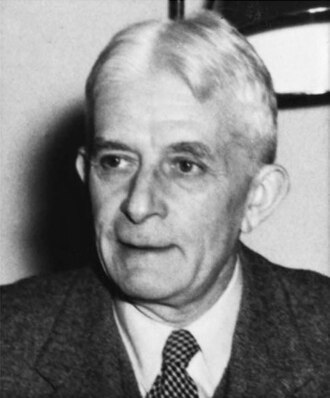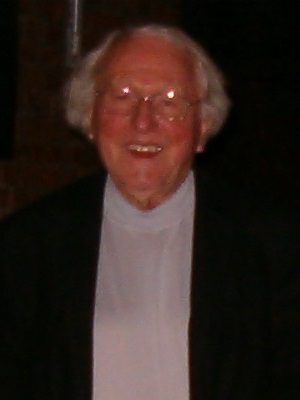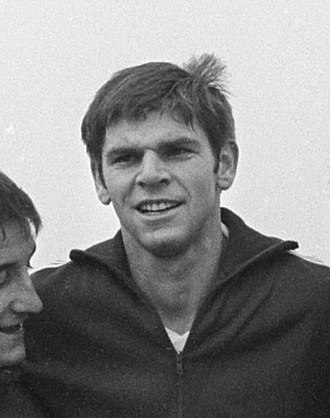Discover Your Roots
SIGN UPDiscover Your Roots
SIGN UPWolfgang is a male given name of German origin, meaning "Wolf Way". It is a combination of the Old High German words "wolf", referring to a wolf, and "gang", meaning "path", "journey", or "travel". The earliest recorded famous bearer of the name was Saint Wolfgang of Regensburg in the tenth century. The name has been popular in Germany, Austria, and Switzerland. The first element "wolf" also appears as the combining form "-olf" in Old High German. The name has been associated with royalty, nobility, and notable figures in various fields such as music, arts, and entertainment. Notable individuals with the name include Wolfgang Amadeus Mozart, a renowned composer, and Wolfgang von Trips, a German racing driver. Additionally, the name has been featured in art and entertainment, with characters like Wolfgang Bogdanow in the television series Sense8.

Wolfgang Köhler (1887-1967) was a prominent German psychologist and phenomenologist who played a key role in the development of Gestalt psychology alongside Max Wertheimer and Kurt Koffka. Notably, during the Nazi regime, Köhler vehemently opposed the dismissal of Jewish professors from universities and the requirement for professors to give a Nazi salute at the beginning of their classes. His principled stance led him to leave Germany in 1935 and accept a professorship at Swarthmore College in the United States, where he continued his academic and research work for two decades.Köhler's early life saw him born in Reval, Russian Empire (now Tallinn, Estonia), before moving to Germany with his family. He pursued his education at prestigious universities, including the University of Tübingen, the University of Bonn, and the University of Berlin, where he explored the intersection of physics and psychology under the guidance of leading scholars.His collaboration with Wertheimer and Koffka in Frankfurt led to the founding of Gestalt theory, revolutionizing the understanding of holistic psychology. Köhler's research on problem-solving, particularly his work with chimpanzees on the island of Tenerife, marked a pivotal moment in the study of animal cognition and intelligence. The insights gained from his observations of chimpanzee behavior challenged prevailing theories of animal learning and significantly influenced the field of psychology.Köhler's enduring contributions to psychology, his ethical stance during

Wolfgang Wagner (30 August 1919 – 21 March 2010) was a renowned German opera director, best known for his role as the director of the Bayreuth Festival. Born in Bayreuth, Bavaria, he was the son of Siegfried Wagner and Winifred Wagner. His family had close ties to Adolf Hitler, and Wolfgang himself was a member of the Hitler Youth and later joined the German Army.Following his brother Wieland's death in 1966, Wolfgang took over as the sole director of the Bayreuth Festival, where he commissioned various controversial productions, including the Ring Cycle by Patrice Chéreau. Despite his contributions, Wolfgang faced criticism for his autocratic management and alleged ill-treatment of certain family members.Throughout his career, Wolfgang sought to modernize and revitalize the festival, making it one of the most popular opera destinations globally. Despite the controversies surrounding his family and his own tenure, Wolfgang's influence on the world of opera remains significant.His legacy lives on through his children, including Eva, Gottfried, and Katharina, with Eva eventually succeeding him as the director of the Bayreuth Festival. Wolfgang's impact on the opera world and his family's complex history continue to be subjects of interest and debate.---The summary has been crafted to provide an overview of Wolfgang Wagner's life, career, and family ties in a neutral and informative manner. It stays within the specified word count and is structured to

Wolfgang Vogel (30 October 1925 – 21 August 2008) was a significant figure during the Cold War, known for brokering high-profile spy swaps and political prisoner exchanges between the Soviet bloc and the West. Born in Wilhelmsthal, he studied law and became a lawyer, later working for the Stasi to facilitate contacts with West German lawyers, ultimately becoming a key negotiator in spy exchanges. Vogel's most notable swaps included Francis Gary Powers and Frederic Pryor for Vilyam Genrikhovich Fisher, as well as the exchange of Günter Guillaume in 1981. He played a pivotal role in the transfer of thousands of East German political prisoners and ordinary citizens to the West, often receiving a secret fee for his services.After German reunification, Vogel faced legal challenges related to his Stasi connections, leading to accusations of extortion, profiteering, and tax evasion. Despite these controversies, his role during the Cold War earned him a place in history as a crucial intermediary between East and West Germany. Vogel's life and career were portrayed in the 2015 film "Bridge of Spies," solidifying his legacy as a key figure in Cold War espionage.

Wolfgang Weber, born on June 26, 1944, is a renowned German former footballer celebrated for his unforgettable last-minute equalizer for West Germany at the 1966 FIFA World Cup final. As a central defender, he played a significant role for 1. FC Köln in 356 Bundesliga matches. Weber's iconic moment took place at Wembley in 1966, where he scored the game-tying goal with almost the last kick of the match, resulting in a 2–2 score against England. Despite this effort, England emerged victorious with a 4–2 win in extra time. Weber's illustrious career with Köln spanned from 1963 to 1978, during which he also represented West Germany at the 1968 European Championships and the 1970 World Cup, earning 53 caps for his country. After retiring from playing, Weber transitioned into coaching, leading Bundesliga side Werder Bremen from 1978 to 1980. Post-retirement, he has been actively involved with the German branch of the Special Olympics, displaying his continued dedication to the sport. For more information, visit Wolfgang Weber at WorldFootball.net and fussballdaten.de (in German).

Wolfgang Frank (21 February 1951 – 7 September 2013) was a prominent German football manager and player. With 215 appearances and 89 goals in the Bundesliga, Frank left a significant mark on the field. His managerial career saw him at the helm of 16 clubs, guiding Rot-Weiss Essen to the 1994 DFB-Pokal final. Notably, Frank introduced the 4-4-2 system to Germany, revolutionizing tactical thinking in German football. Inspired by Arrigo Sacchi's A.C. Milan, he brought advanced tactics to the Bundesliga, influencing a new generation of managers like Jürgen Klopp and Joachim Löw. Frank's legacy extends beyond his accomplishments, inspiring a renaissance in German football. His impact continues to resonate, shaping the sport's development. Wolfgang Frank's contributions to football remain an enduring part of his legacy, impacting the game at both national and international levels.
All images displayed on this page are sourced from Wikipedia or Wikimedia Commons.We use these images under their respective Creative Commons or public domain licenses. Wherever applicable, author attributions and license information are provided. If you believe an image is used incorrectly or outside its license terms, please contact us so that we can review and correct the issue.